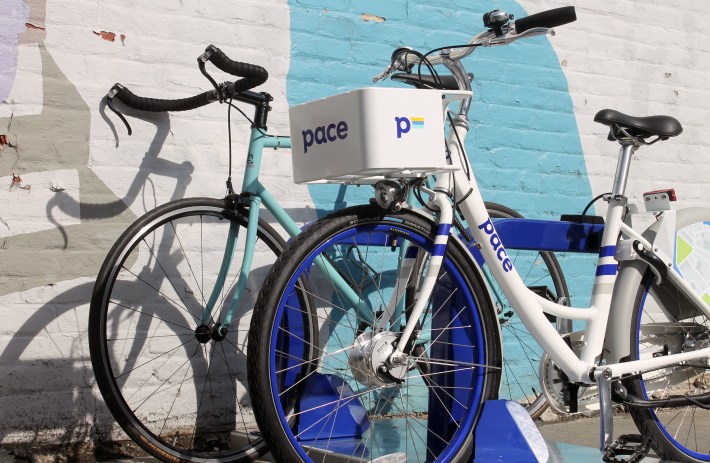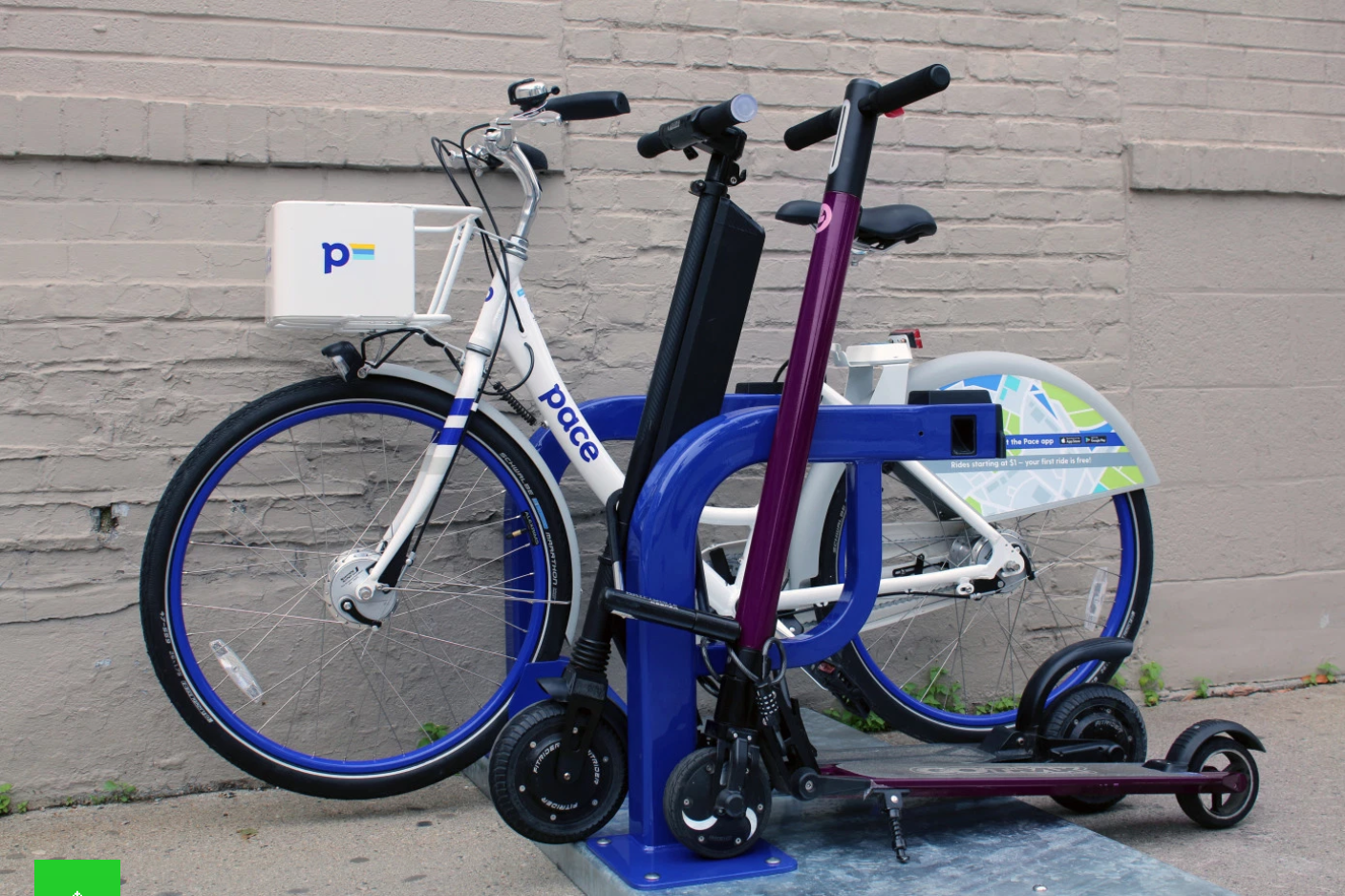Last week Pace, one of Chicago’s four dockless bike-share vendors, announced that they will be installing 25 “mobility parking platforms” on private property within Chicago’s Far South Side DoBi pilot area. In plain English, they’re talking about fairly conventional-looking bike parking racks (although one end of the rack has a hole in it to facilitate locking Pace bikes via their built–in cable locks.) But the company is promoting the fixtures as being available for parking any company’s dockless bikes, as well as dockless electric scooters and personal cycles. Pace has gotten permission from institutions and businesses such as Chicago State University in Roseland and Open Outcry Brewing in Beverly to install the fixtures on their property.
Pace is owned by Cambridge, Massachusetts-based Zagster. “It’s Zagster’s perspective that there is one giant hurdle standing between dockless mobility and future, long-lasting success and adoption – parking,” said spokeswoman Danielle Toboni via email. “The lack of parking infrastructure to secure and scale the tens of thousands of new vehicles that are descending upon their streets and sidewalks is a huge challenge faced by many U.S. cities. Chicago, in partnership with Pace, will not fall into that category.” She noted that the Chicago Department of Transportation is also installing 100 racks in the pilot area. According to CDOT, the department is using DoBi permitting revenue to pay for the installations.

That’s all great, but why the grandiose “mobility parking platform” name? “We're not calling them bike racks because they're designed for more than just bikes!” Toboni responded. “They can facilitate scooter parking and the design is open enough to handle any new dockless mobility vehicles that might pop up down the road. This move is less about the physical thing itself and more about the principle.” She added that Chicago is the first city to get the new Pace racks.
You can lock up just about any type of personal mobility device (that’s capable of being secured to anything) to the classic “inverted U” racks CDOT uses, so there’s really no need to reinvent the wheel. But, hey, if futuristic names get private companies excited about installing more parking that everyone can use, they can call bike racks whatever they like, as far as I’m concerned.





